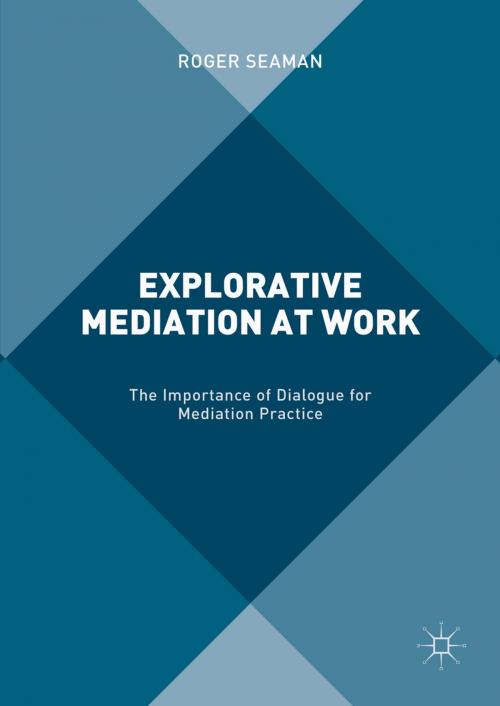Explorative Mediation at Work
The Importance of Dialogue for Mediation Practice
Business & Finance, Business Reference, Business Ethics, Human Resources & Personnel Management| Author: | Roger Seaman | ISBN: | 9781137516749 |
| Publisher: | Palgrave Macmillan UK | Publication: | May 27, 2016 |
| Imprint: | Palgrave Macmillan | Language: | English |
| Author: | Roger Seaman |
| ISBN: | 9781137516749 |
| Publisher: | Palgrave Macmillan UK |
| Publication: | May 27, 2016 |
| Imprint: | Palgrave Macmillan |
| Language: | English |
Exploring and critiquing various methods of mediation, this innovative book critically develops a new explorative practice in the field. Considering ways in which mediators may influence disputing parties, especially in the workplace where mediators are paid to intervene, Explorative Mediation at Work questions the common claim that mediation is a neutral intervention. The difference between offering minimally intrusive support and acting to secure a containment and even suppression of workplace conflict is heavily dependent upon a mediator’s practices. At worst, engineering resolution may tarnish mediation’s reputation for impartiality. At best, mediation can win the trust of parties in conflict, facilitate a democratic engagement and be of real benefit to organizations. This book aims to demonstrate the latter in proposing a practice that supports parties to seek out dialogue from which relationships may be rebuilt and practical problems resolved.
Exploring and critiquing various methods of mediation, this innovative book critically develops a new explorative practice in the field. Considering ways in which mediators may influence disputing parties, especially in the workplace where mediators are paid to intervene, Explorative Mediation at Work questions the common claim that mediation is a neutral intervention. The difference between offering minimally intrusive support and acting to secure a containment and even suppression of workplace conflict is heavily dependent upon a mediator’s practices. At worst, engineering resolution may tarnish mediation’s reputation for impartiality. At best, mediation can win the trust of parties in conflict, facilitate a democratic engagement and be of real benefit to organizations. This book aims to demonstrate the latter in proposing a practice that supports parties to seek out dialogue from which relationships may be rebuilt and practical problems resolved.















